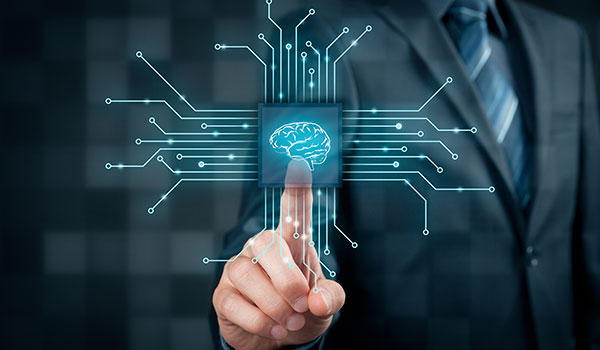
The influence of technology in the healthcare industry was for a long time thought to be a thing of the future. But recent advances in artificial intelligence are being used increasingly in health and its allied sectors. As the world evolves and introduces new technology, so does the healthcare sector. It is constantly getting reviewed and new technologies are being adopted for better understanding and treatment of diseases and illnesses. Groundbreaking discoveries have brought us forward by leaps and bounds when compared to the past century. Likewise, artificial intelligence is slowly enhancing and helping in the healthcare industry.
To the common person, artificial intelligence has been associated more with technology, electronics, and technical things, but slowly and steadily, it has gained importance in health. The areas in healthcare where artificial intelligence has been employed are limited to a few fields like imaging, diagnosis and treatment, and surgeries, yet they have shown to be of remarkable value.
Artificial intelligence means the use of a machine to perform tasks that would have required human intelligence previously.
Currently, in healthcare, there’s an increase in the usage of data and systems, and artificial intelligence can be applied to integrate information and help healthcare staff in various categories. Different aspects have been taken into consideration to study the impact and effectiveness of this technology. There are also a few ethical issues that may arise because of the use of artificial intelligence like the lack of human empathy while being informed of a diagnosis, and the privacy and confidentiality of patient information.
What are the types of AI that have been used in healthcare?
Machine learning
This is where machines or models are fitted with data and are then trained to understand this data. This will then be used in various areas of medicine. It is a common form of AI. This is mostly employed in what is known as precision medicine. These machines are fed with algorithms and data, and in turn, they try to provide information about the probability of a person responding to a treatment modality and its success rate.
Another important area where machine learning is being used is in imaging studies. This involves a more complex program and learning curve for the machines, which is known as deep learning. This is very useful in detecting cancers at an early stage which could be missed by the human eye. It allows for increased accuracy and precision, thus aiding in better management and treatment measures.
Processing language
Employing the modalities like speech recognition, text analysis, and translation, natural language processing or NLP is another form of AI. The main aim of using AI in healthcare is to make things easier. In NLP, large amounts of clinical notes and research can be studied, analyzed, and documented in a segregated manner. It becomes easier to browse through the information and in companies, it can be used to derive conclusions about healthcare assessments. Machines can be taught to have conversations and used for transcribing doctor-patient interactions faster and more accurately.
Robots with sophisticated operating systems
Robots have also found a place in healthcare. These include assisting in surgeries that are minimally invasive and almost perfect. There are disadvantages like the surgeon wouldn’t have the liberty of his sense of touch and would have to rely completely on his robotic hands, it’s a new modality and has a steep learning curve for surgeons to learn its nuances, and the cost for performing these surgeries is on the higher side. However, an amazing advantage is that surgery can be done on a patient while the surgeon is in another country! If developed well, robots could well become a common sight in operating rooms.
AI in public health
Different algorithms and codes have been developed which are being implemented to study information about diseases of public health importance and providing statistical knowledge about their characteristics. This can be used to improve the management and prevention of further episodes.
A few things to remember
AI is an evolving technology in healthcare and it should be dealt with carefully. The implications of being dependent completely on artificial intelligence could interfere with human intuition and diagnosing ability. There are also speculations about some job loss in certain fields of healthcare in the future, where AI may take over.
There’s a lot that remains to be studied and perfected with regards to AI. But clinicians and researchers feel that it could be a game-changer in terms of better patient care.

